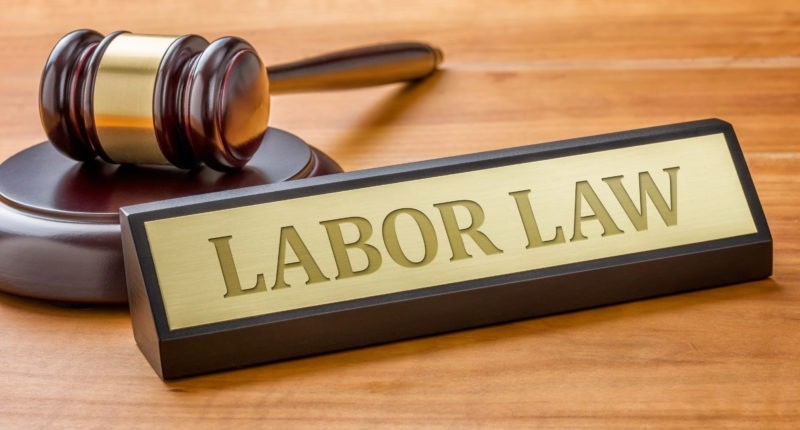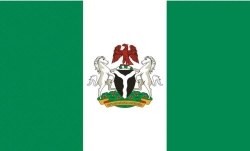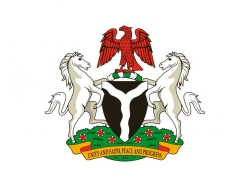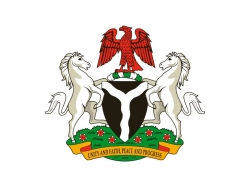Home / Blog / Government & Law
National Minimum Wage Act in Nigeria (2024)

The National Minimum Wage Act is one of Nigeria’s most important labor laws, designed to protect the welfare of workers across the country. It sets the legally mandated minimum amount employers must pay their employees, regardless of industry or job type. This Act ensures that every employee earns a wage that meets the minimum standard for basic living, thus protecting workers from exploitation and reducing income inequality. It is regularly reviewed to reflect economic realities and inflationary trends in the country.
In this post, we will explain the key provisions of the Act, its historical background, recent amendments, the challenges of implementation, and how it affects both employers and employees in Nigeria.
Historical Background of Minimum Wage in Nigeria
The concept of a minimum wage was first introduced in Nigeria in 1981, under the Minimum Wage Act No. 6 of 1981, which set the national minimum wage at ₦125 per month. This was a response to labor unrest and demands for better wages from worker unions.
Over the years, the law has been amended multiple times to reflect changing economic conditions:
- 2000: Minimum wage increased to ₦5,500 for state workers and ₦7,500 for federal workers.
- 2011: New National Minimum Wage Act raised it to ₦18,000 across board.
- 2019: The National Minimum Wage (Amendment) Act increased the wage to ₦30,000 per month.
- 2024: The National Minimum Wage (Amendment) Act increased the wage to ₦70,000 per month.
The wage is meant to be reviewed every five years, but political and economic factors often delay this process.
Key Features of the National Minimum Wage Act
-
Objective
- The primary goal of the Act is to set a baseline wage that all employers in Nigeria must pay to their employees, regardless of the sector. It aims to guarantee a minimum standard of living for workers and to ensure fair remuneration for their labor.
-
Current Minimum Wage in Nigeria
- At the time of this writing, the latest amendment to the National Minimum Wage Act, signed into law in 2024, set the minimum wage at ₦70,000 per month. This amount is the legal minimum that employers in Nigeria must pay to all qualifying employees.
- The minimum wage is subject to periodic review to reflect changes in the cost of living and economic conditions.
-
Coverage
- The Act applies to both public and private sector workers in Nigeria. However, some exceptions exist, such as:
- Establishments with fewer than 25 employees.
- Employees working in part-time roles, apprentices, or seasonal workers.
- Employers who are unable to meet the wage due to financial incapacity (subject to government approval).
- The Act applies to both public and private sector workers in Nigeria. However, some exceptions exist, such as:
-
Enforcement
- The Federal Ministry of Labour and Employment is responsible for ensuring compliance with the National Minimum Wage Act.
- Employers who fail to comply with the minimum wage requirements are subject to penalties, including fines or imprisonment.
- Employees who are paid below the minimum wage have the right to file a complaint with the Ministry of Labour.
-
State Implementation
- Although the minimum wage is set at the federal level, implementation at the state level can vary. Some states may delay payment or negotiate with workers' unions to determine how best to implement the wage increase based on their financial capacity.
- This sometimes results in discrepancies in compliance across states, especially with financially constrained states struggling to pay the ₦70,000 minimum wage.
-
Exemptions and Special Cases
- Companies with less than 25 workers, apprentices, and seasonal workers may be exempt from the minimum wage requirements.
- The Act allows for wage adjustments based on agreements reached through collective bargaining.
-
Periodic Review
- The minimum wage is not fixed and may be reviewed periodically by the government to adjust for inflation and other economic factors. A review is typically considered every three years. This review period was shortened from five years to three years in the 2024 amendment to the Act. The purpose of the review is to ensure the minimum wage reflects current economic conditions, including inflation and the cost of living. Therefore, the current minimum wage in Nigeria is due for review in 2027, three years after the last amendment in 2024
- The process for reviewing the minimum wage involves consultations between the government, employers, and workers' unions.
-
Challenges
- Inflation: With the high inflation rate in Nigeria, even the minimum wage may not be sufficient to cover basic living expenses, making it challenging for workers to maintain a decent standard of living.
- Enforcement issues: Ensuring compliance across all sectors can be difficult, particularly with small businesses and informal sector employers.
- State compliance: Some state governments struggle with the financial implications of implementing the minimum wage, leading to delays in payment or partial compliance.
-
Workers' Rights
- The Act ensures that employees are entitled to a minimum level of income, and any employer who fails to pay the legal minimum wage is violating the workers' rights.
- It also establishes the foundation for wage negotiations between employers and employees, often mediated by labor unions.
Impact on Workers and Employers
For Workers:
- Guarantees a basic standard of income.
- Enhances purchasing power and living standards.
- Protects against labor exploitation.
For Employers:
- Ensures fair competition by standardizing wages.
- Encourages employee retention and morale.
- However, it may increase labor costs, especially for SMEs.
FAQs About The National Minimum Wage Act
What is the current minimum wage in Nigeria?
The current minimum wage in Nigeria is ₦70,000 per month, established by the National Minimum Wage (Amendment) Act of 2024.
Who is entitled to receive minimum wage?
All workers in both public and private sectors, provided their employer has 25 or more employees, are entitled.
Can a state government pay less than the national minimum wage?
No. While enforcement may be weak, states are legally required to pay at least the national minimum.
Is the minimum wage tax-free?
No. Income tax laws still apply to all earnings above the tax-free threshold.
How often is the minimum wage reviewed?
The 2024 Act mandates a review every 3 years, although implementation often varies.
The National Minimum Wage Act remains a cornerstone of labor protection in Nigeria. While the current wage of ₦70,000 is a step toward income equity, economic realities demand more frequent reviews and strict enforcement. For Nigeria to achieve fair labor standards, all stakeholders—governments, employers, and unions—must play their part in ensuring that workers are paid what they deserve.
- Download the Nigeria National Minimum Wage Bill 2019 in PDF
- Download the Nigeria National Minimum Wage Amendment Bill 2024 in PDF



